Our research portfolio
Kaupapa Māori theory informs the basis of NHC health research.
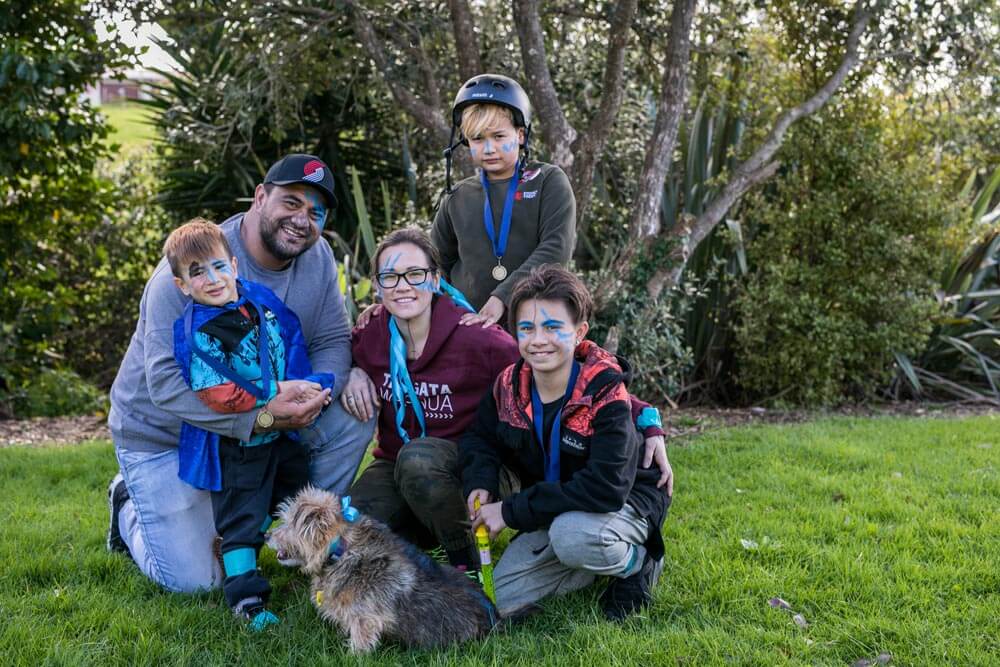
On this page
Past research
Pacific Fono
This was a National Hauora Coalition led initiative. Rheumatic fever inequitably affects Māori and Pacific children in New Zealand. Counties Manukau has the highest national rates of rheumatic fever (4.7 per 100,000 for first recorded rates). School-based throat swabbing services, such as the South Auckland Mana Kidz programme, are a key element of rheumatic fever prevention interventions. Mana Kidz undertook an exploratory, community-based initiative to improve its service delivery for Pacific Peoples. Mana Kidz held a Pacific Leaders’ Fono (meeting) to discuss initiatives to improve rheumatic fever outcomes in South Auckland focused around challenges and solutions for addressing rheumatic fever, effective engagement strategies and leadership qualities needed to drive initiatives. Oral and written responses from 66 attendees were collected and thematically analysed.
Reference: J PRIM HEALTH CARE 2020;12(4):384–390. doi:10.1071/HC20022
Read the publication: (https://pubmed.ncbi.nlm.nih.gov/33349328/)
Impetigo trial
This project was led by Dr. Alison Leversha, Auckland DHB in partnership with National Hauora Coalition. Impetigo is a contagious superficial bacterial skin infection, predominantly affecting children. New Zealand experiences a particularly high burden of skin and soft tissue infections with as many as 11% of NZ children aged under 15 years consulting their general practitioner for skin infections annually. The highest rates of which are seen in children under 10 years of age and Māori and Pacific children. These ailments are treated with topical antibiotics such as fusidic acid. However there is growing concern about increasing antibiotic resistance driven by the wide-spread community usage of topical antibiotics. Alternative therapies must be urgently found to prevent increasing resistance. This project aimed to compare two alternative treatments with the current standard of care treatment for mild-to-moderate impetigo among school children. Data collection wrapped up in April 2021.
Paracetamol project
The paracetamol project collected data from 1000 participants who were parents/caregivers to tamariki Māori aged 0 -14 years. This project analysed the dosing accuracy of participants when using a 5ml plastic syringe and whānau informed label compared to a standard prescription label and common conventional measuring apparatuses including dessert spoons, 40mL measuring cups and the paracetamol bottle cap. This project found that parent/caregivers were more precise with the intervention syringe and label compared to the standard prescription label and conventional measuring techniques. Additionally, this project also identified that parent/caregivers to tamariki are more likely to underdose their child than overdose their child with liquid paracetamol. The study provides compelling evidence that the tested syringe and label can significantly improve paracetamol dosing accuracy and reduce the risk of overdosing errors. Scaling up these solutions could have a significant impact on tamariki Māori health outcomes. The study also highlights the need for increased education and clear communication between health practitioners and caregivers to ensure the safe and effective use of paracetamol.
Sensors Project
This is a National Hauora Coalition led study. The project used sensors in the homes of whānau in South Auckland to better understand the potential influences that the interventions coordinated through AWHI healthy housing initiative may have on the indoor temperature and humidity of a home. High humidity, poor insulation, poor maintenance practices, and relatively low levels of heating mean that many New Zealand families live in damp and cold homes. Dampness can lead to mould growth which leads to health consequences including respiratory illnesses. Māori and Pacific peoples and those living in lower socioeconomic quintiles tend to live in areas with poor quality housing contributing further to health inequities. This project collected quantitative data on indoor temperature and humidity in AWHI homes both pre- and post- interventions in the home to influence indoor temperature and humidity alongside increases in healthy homes education with whānau. 40 whānau were onboarded to this project in the end of 2019 and this project is slated to finish in early 2021.
Reference: This is an Original Manuscript of an article published by Taylor & Francis in Kōtuitui: New Zealand Journal of Social Sciences Online on 31 August, available at http://wwww.tandfonline.com
Read the publication: Substandard South Auckland housing: findings from a healthy homes initiative temperature study
Te Puna Rongoā : Achieving medicines access equity for Māori – pharmacists’ role
This project is led by Dr Joanna Hikaka and is a partnership project between Ngā Kaitiaki o Te Puna Rongoā o Aotearoa (the Māori Pharmacists’ Association) and National Hauora Coalition. The study is a multi-phase, mixed methods Kaupapa Māori project that aims to explore how Ngā Kaitiaki o Te Puna Rongoā o Aotearoa can support equitable access to medicines and to understand Māori experiences and drivers of medicines adherence and non-adherence. It is intended that this study could be used to inform health intervention and service development in the future.
Read our press release about this study here >>
Lockdown Doctors: Reducing health care inequities for Māori using virtual clinics and online platforms (a real-time response to COVID-19)
This is a collaborative study by National Hauora Coalition, The University of Auckland, Papakura Marae, Royal New Zealand College of General Practitioners, Te Rōpū Whakakaupapa Urutā, Te Ohu Rata o Aotearoa (Māori Doctors Association) and the University of Otago. Māori continue to experience significant barriers to accessing primary healthcare that contribute to ongoing health inequities. In direct response to COVID-19, primary healthcare practices quickly adopted virtual (online/video/phone) GP clinic models in order to continue to provide primary healthcare to New Zealand communities. Feedback from Māori health professionals involved with COVID-19 lockdown responses suggests that the ‘virtual clinic’ experience inadvertently removed barriers to healthcare for Māori patients in particular. For example, attending GP visits through virtual clinics (online) eliminated transport costs, travel and waiting times for consultation. This research aims to investigate and inform the use of virtual healthcare clinics within Māori communities as a catalyst to reducing barriers to accessing healthcare, and thereby reducing health inequities.
Current research
Haumaru Panuku Oranga
In Aotearoa New Zealand, Kaumātua and their whānau (family) are underserved by the transport system and are less able to get around urban and rural settings. Kaumātua Māori fulfil crucial roles that sustain the societal units of whānau and hapori. Participation is dependent on accessible transport options even when driving private vehicles is no longer possible. However, there is a dirth of research concerning the kaumātua experience of transport, especially using a kaupapa Māori perspective. Haumaru Panuku Oranga was a Māori-led qualitative research project that sought to understand kaumātua perspectives about their transport needs in Aotearoa. This project fell under the umbrella of the longitudinal transport study NZPaths led by the University of Otago. Using kaupapa Māori and qualitative methodology, researchers conducted fifty wānanga and face-to-face interviews with kaumātua and whānau from across Aotearoa to gain a better understanding of unique experiences and needs. Data was collected in both te reo Māori and English and transcribed by te reo Māori speaking transcribers. The findings developed by Māori-led researchers have shown that kaumātua feel forgotten, isolated and are struggling to be part of their own society due to travel constraints. Researchers found an overarching theme of resistance in the data where kaumātua found ways to resist and circumnavigate systemic issues that prohibited their access to transport. Kaumātua are conscious of the relationship between travel and power, specifically that Pakeha have the power to fund travel for all but not for kaumātua Māori. Kaumātua resisted the concept of individuality that underscores transport policy and preferred to be transported with people they knew. Outcomes of this study will add to the currently limited body of research around kaumātua Māori and transport.
Bridging the gaps: applying rangatahi Māori and Pacific patient-centered models of care to inform acute rheumatic fever and rheumatic heart disease service delivery
This Kaupapa Māori research is funded by Cure Kids and is being undertaken in collaboration with the National Hauora Coalition, the University of Auckland, the University of Otago, and Waikato DHB. The research aims to develop a rangatahi Māori, Pacific patient, and whānau-centered model to improve acute rheumatic fever (ARF) secondary prophylaxis health services, treatment, and management. ARF is an autoimmune response to an untreated group A streptococcus (GAS) infection, usually in the throat. The most severe sequela is rheumatic heart disease (RHD), which may require cardiac surgery. Significant ethnic disparities exist in ARF, with disproportionate rates among Māori and Pacific children between 5 and 14 years of age. To prevent ARF patients from suffering further heart damage, secondary prophylaxis is recommended. This involves monthly intramuscular penicillin injections for a minimum of 10 years. Recent research on Māori and Pacific Peoples’ experiences of ARF prophylaxis identified mismatches between ARF services and patient/whānau expectations of care, particularly for rangatahi (adolescents/young adults between 15-24 years). Furthermore, whānau and health providers reported difficulties with prophylaxis provision, identifying significant challenges in transitioning from pediatric to adult ARF/RHD services. Collectively, these studies highlight notable gaps in culturally responsive, age-appropriate care for rangatahi Māori and Pacific. This research aims to bridge these gaps by developing a rangatahi Māori and Pacific patient-centered model to improve ARF secondary prophylaxis health services and treatment. This project is mid-implementation with a model that reflects lived experiences, elevating whānau voices and narratives with interventions to meet these.
In the media
Reducing Healthcare Inequities for Maori using Telehealth during Covid
Telehealth consultations have the potential to improve access to healthcare for Māori, and thereby reduce health inequities. Conversely, Telehealth may present additional barriers that contribute to inequities overall.
Researchers Erena Wikaire, Matire Harwood, Kayla Wikaire-Mackey, Sue Crengle, Rachel Brown, Anneka Anderson, Rawiri McKree Jansen, Rawiri Keenan carried out a scoping project, that investigated Māori experiences of Telehealth consultations during the March 2020 COVID-19 lockdown.
If rheumatic fever affected Pākehā, more would be done
Dr Anneka Anderson (a research partner from University of Auckland) is a leading academic in rheumatic fever and says if it was a disease that affected Pākehā children, much more would have been done. She spoke to Māni Dunlop in this Radio New Zealand Health episode.
Is it time for a rheumatic fever register?
Dr Anneka Anderson (a research partner from University of Auckland) joins RNZ to talk about the implications of hard to access, untargeted treatment for rheumatic fever, and what needs to happen.
Eradicating rheumatic heart disease
Dr Anneka Anderson (a research partner from University of Auckland) chats on the Cure Kids NZ podcast
Research to improve medicines access for whānau
NHC has partnered with Ngā Kaitiaki o Te Puna Rongoā o Aotearoa (the Māori Pharmacists Association) to carry out research into equitable medicines access for whānau Māori.
Study to prevent Paracetamol poisoning in children
Previous NHC Clinical Director, Dr Rawiri McKree Jansen is the lead researcher in a Māori-led study looking at the challenges caregivers can face in accurately dosing paracetamol.
Ngā kairangahau
Our research staff
Click on a staff photo to view selected works.
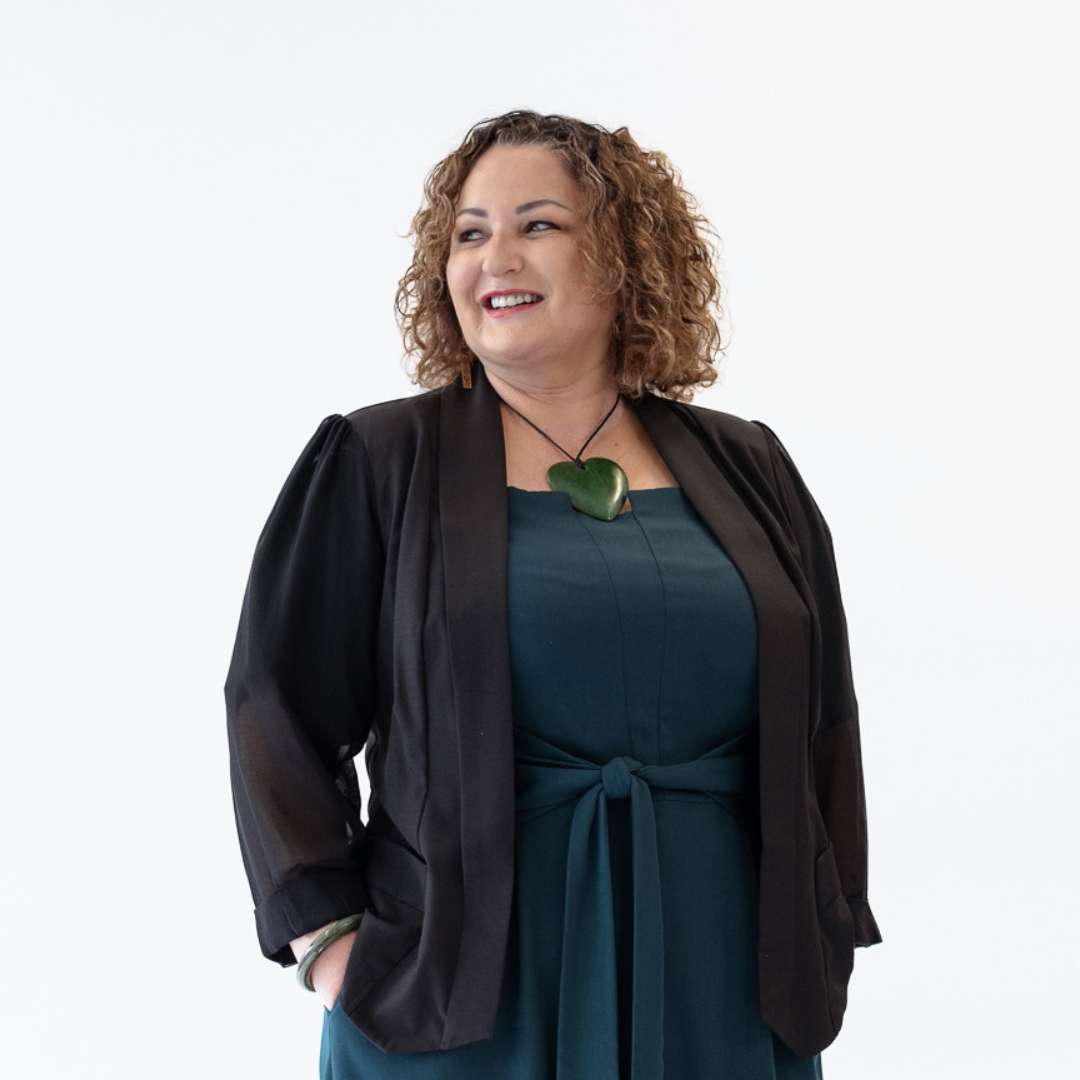
Dr Rachel Brown
Te Ātiawa ki Wharekauri, Kāi Tahu
Selected works
– Beukes, C., Tkatch, M., Pierse, N., Chun, S., Brennan, A., Anderson, A., & Brown, R. (2023). Substandard South Auckland housing: findings from a healthy homes initiative temperature study. Kōtuitui: New Zealand Journal of Social Sciences Online, 19(2), 152–163.
-Phillipson-Puna, T., Tkatch, M., Ikiua, M., Leilua, S., Cribb-Su’a, A., Brown, R., & Anderson, A. (2024). A Methodological Insight: Using Online Indigenous Qualitative Data Collection Methods During the COVID-19 Pandemic in Auckland, New Zealand. International Journal of Qualitative Methods, 23
– Bennett, J., Anderson, A., Ofanoa, M., Anderson, P., Brown, R., Devlin, G., Eggleton, K., Harwood, M., McKree-Jansen, R., Kielar, D., Malcolm, J., Moreland, NJ., Poskitt, N., Sika-Paotonu, D., Webb, R. & Wilson, N. (2021). Acute rheumatic fever- a preventable, inequitable disease: a call for action. The New Zealand Medical Journal, 134(1535): 93-95.
– Brown, R. (2018) Surviving the system: Māori and Pacific whānau coping strategies to overcome health system barriers. PhD thesis. Auckland University of Technology.
– National Hauora Coalition, Anderson, A., Brown, R., Wheeler, J. & McKree-Jansen, R. (2020). Pacific Fono: a community-based initiative to improve rheumatic fever service delivery for Pacific Peoples in South Auckland. New Zealand Journal of Primary Health Care, 12(4): 384-390.
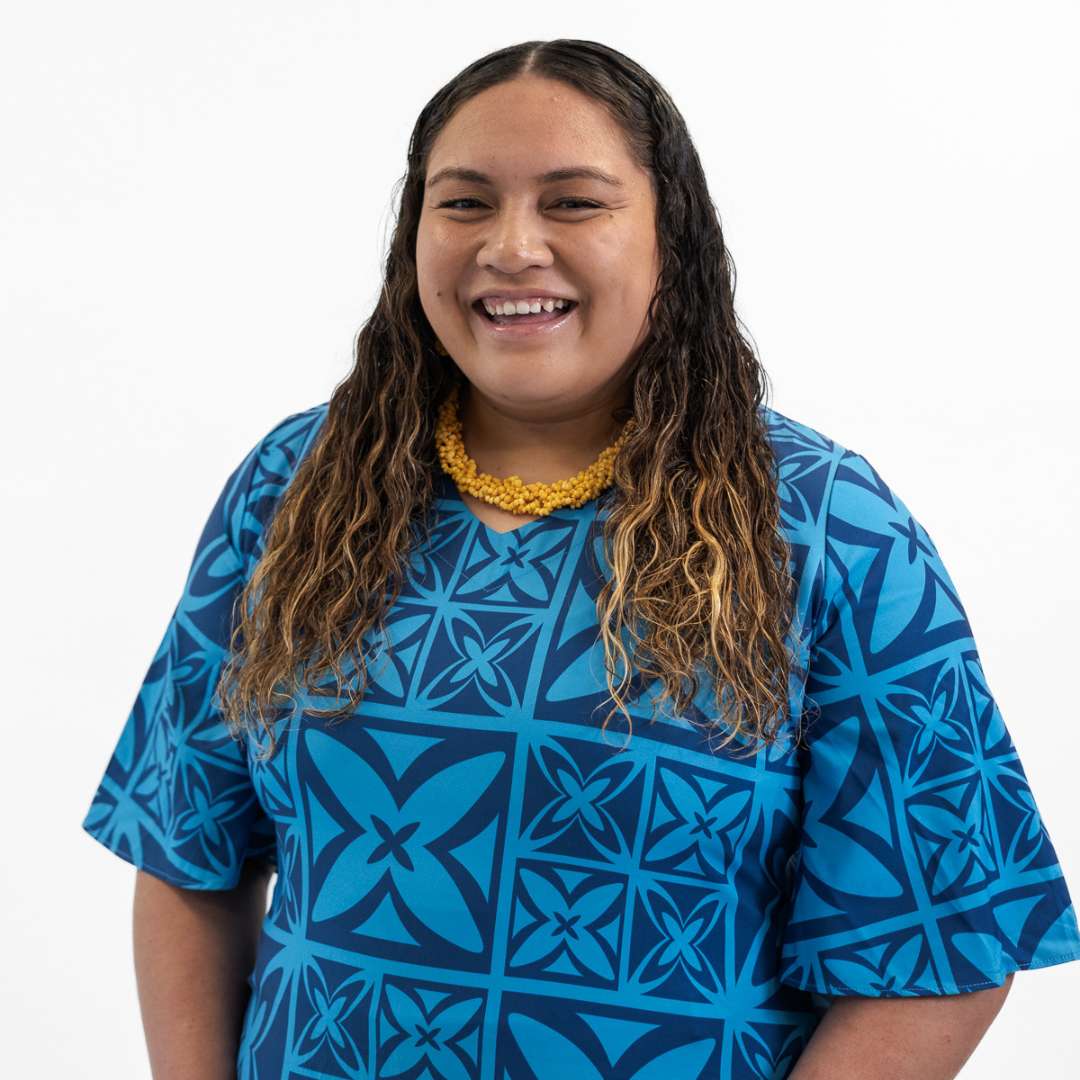
Monleigh Ikiua
Selected works
– Phillipson-Puna, T., Tkatch, M., Ikiua, M., Leilua, S., Cribb-Su’a, A., Brown, R., & Anderson, A. (2024). A Methodological Insight: Using Online Indigenous Qualitative Data Collection Methods During the COVID-19 Pandemic in Auckland, New Zealand. International Journal of Qualitative Methods, 23.

Tira Phillipson- Puna
Selected works
– Phillipson-Puna, T., Tkatch, M., Ikiua, M., Leilua, S., Cribb-Su’a, A., Brown, R., & Anderson, A. (2024). A Methodological Insight: Using Online Indigenous Qualitative Data Collection Methods During the COVID-19 Pandemic in Auckland, New Zealand. International Journal of Qualitative Methods, 23.
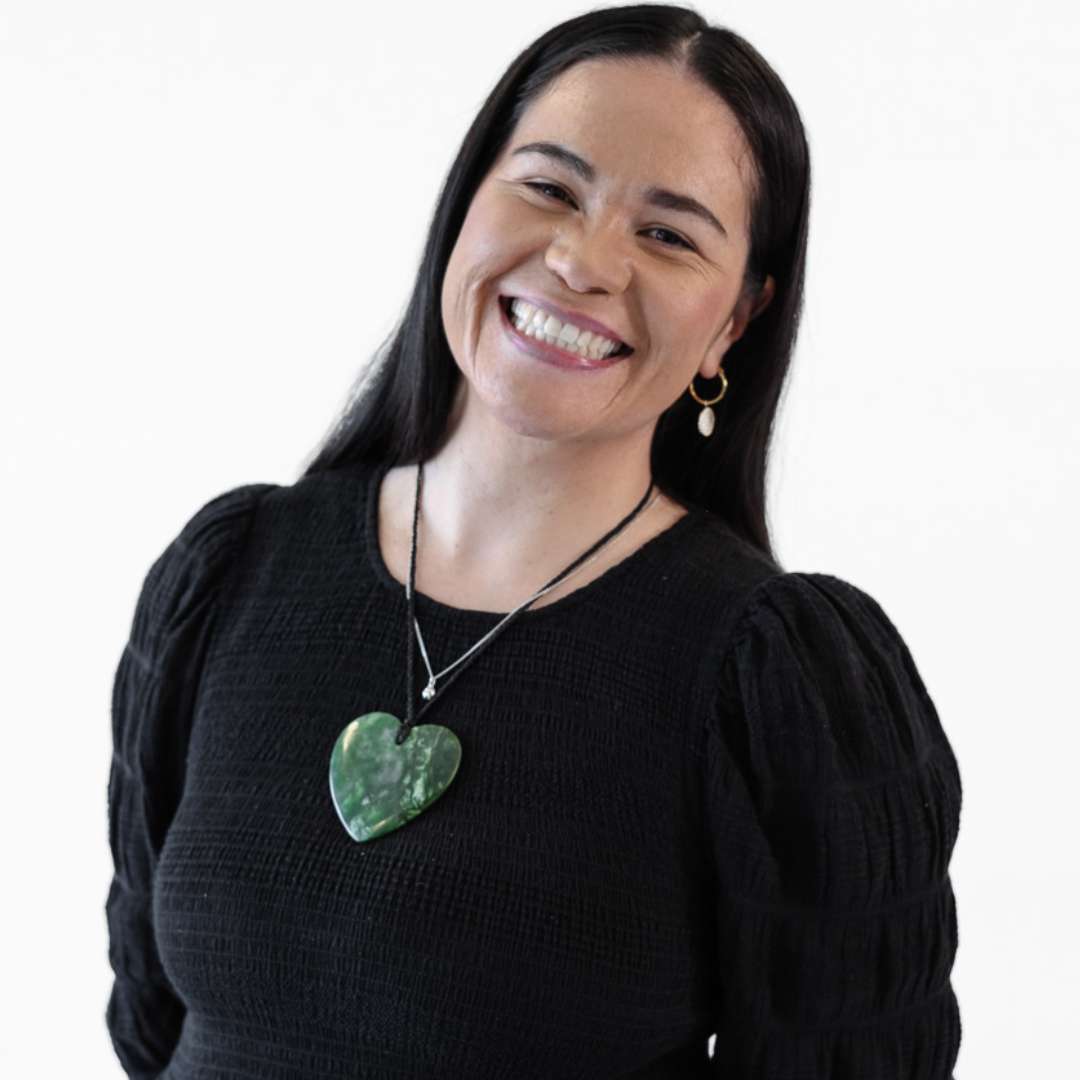
Donna Kielar
Ngāti Hine, Ngāpuhi, Pukapuka Kūki' Āirani
Selected works
– Bennett, J., Anderson, A., Ofanoa, M., Anderson, P., Brown, R., Devlin, G., Eggleton, K., Harwood, M., McKree-Jansen, R., Kielar, D., Malcolm, J., Moreland, NJ., Poskitt, N., Sika-Paotonu, D., Webb, R. & Wilson, N. (2021). Acute rheumatic fever- a preventable, inequitable disease: a call for action. The New Zealand Medical Journal, 134(1535): 93-95.

Kim Arrowsmith
Selected works
– Arrowsmith, K. R. (2022). Child Invisibility: Childhood Obesity Policy of Aotearoa New Zealand (Doctoral dissertation, Auckland University of Technology).
– Foster, M., Blamires, J., Arrowsmith, K., & Connell, T. (2022). Child Invisibility and Childhood Obesity Policy. Rangahau Aranga: AUT Graduate Review, 1(2). https://doi.org/10.24135/rangahau-aranga.v1i2.96
– Buchwald, K., Narayanan, A., Siegert, R. J., Vignes, M., Arrowsmith, K., & Sandham, M. (2024). Centrality statistics of symptom networks of schizophrenia: a systematic review. Psychological Medicine, 1-13.
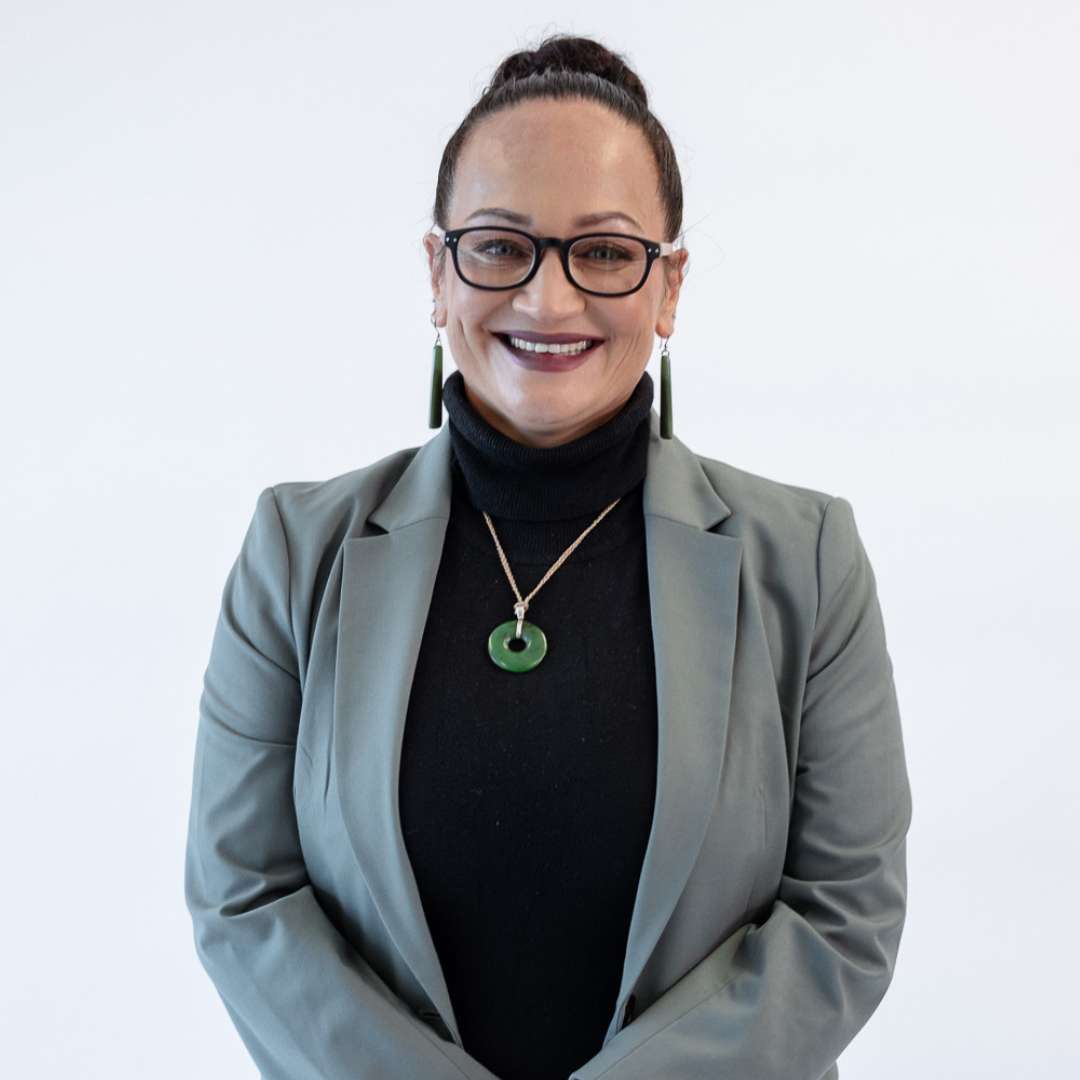
Dr Ainsleigh Cribb-Su'a
Ngāti Maniapoto, Ngāti Kauwhata, Ngāti Tamaterā
Selected works
– Lucassen, M., Stasiak, K., Crengle, S., Weisz, J., Frampton, C., Bearman, S., Ugueto, A Herren, J., Cribb-Su’a, A., Faleafa, M., Kingi-‘Ulu’ave, D, Loy, J & and Merry, S. (in print). Modular approach to therapy for anxiety, depression, trauma or conduct problems in outpatient child and adolescent mental health services in New Zealand: study protocol for a randomized controlled trial. Trials, (2015)
– Elder, H., Milne, M., Witehira, H., Mendes, P., Cribb-Su’a, A., et. al. (2009). Whakaora ngā moemoea o ngā tupuna- living the dreams of our ancestors. Future Planning in a kaupapa Māori CAMHS team. Australasian Psychiatry, 17, 104-107.
– Barker-Collo, S., Clarkson, A., Cribb, A., and Grogan, M. (2002). The impact of American content on California Verbal Learning Test performance: A New Zealand illustration. The Clinical Neuropsychologist, 16, 290-299.
– Barker-Collo, S., Clarkson, A., Cribb, A., and Grogan, M. (2001, August). The impact of American content on California Verbal Learning Test performance: A New Zealand illustration, New Zealand Psychological Society Annual Conference, Auckland, New Zealand.
– Merry, SN., Hopkins, S., Lucassen, MFG. et al. (2020). Effect of Clinician Training in the Modular Approach to Therapy for Children vs Usual Care on Clinical Outcomes and Use of Empirically Supported Treatments: A Randomized Clinical Trial. JAMA Netw Open, 3(8): e2011799-e2011799.
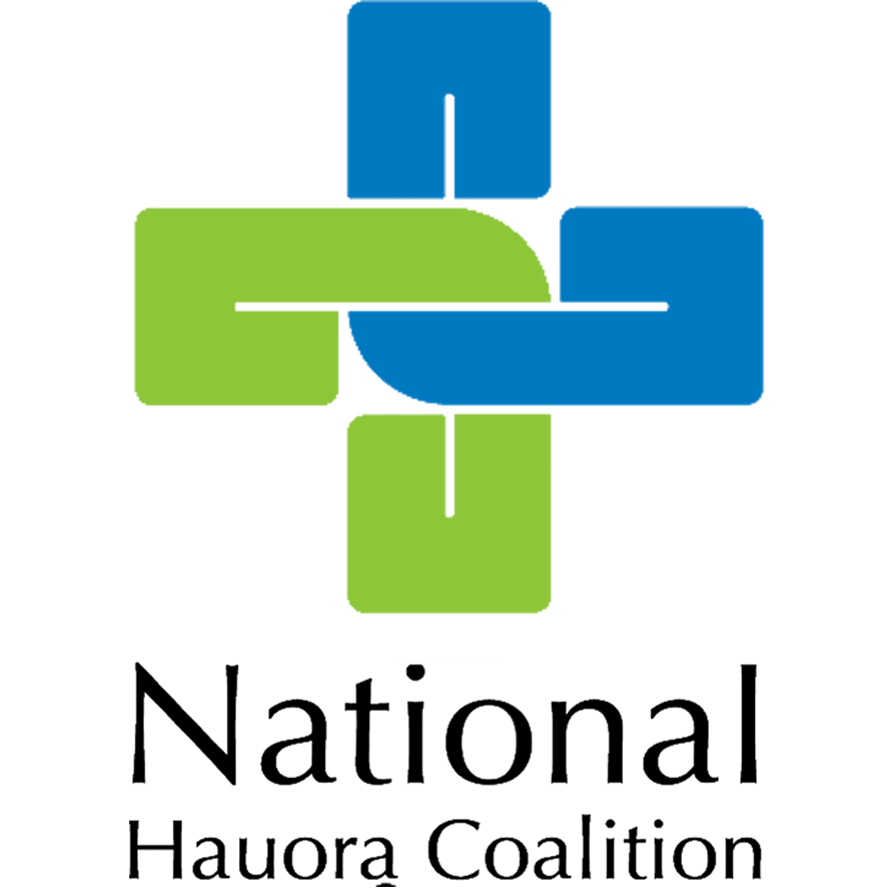
Shannon Leilua
Selected works
– Phillipson-Puna, T., Tkatch, M., Ikiua, M., Leilua, S., Cribb-Su’a, A., Brown, R., & Anderson, A. (2024). A Methodological Insight: Using Online Indigenous Qualitative Data Collection Methods During the COVID-19 Pandemic in Auckland, New Zealand. International Journal of Qualitative Methods, 23, 16094069241286411.

Manawa Rhind
Selected works
– No selected works available yet
